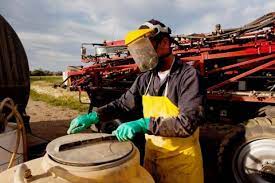Last Updated on April 15, 2024 by Real Men Sow
Accidents in agriculture and farming are far too common, and they cause deaths every year. Several types of sharp, heavy, or moving machinery can pose a threat to workers on the ground, with both human and machine error contributing to the risks.
Whether you’re a farm manager or a manual labourer, it’s crucial to know how to optimise safety and keep your staff working effectively too.
Keeping staff safe on a farm: Five crucial areas
- Farm vehicles
Tractors, combine harvesters, and long farm vehicles present danger to anyone working onsite. Recent statistics from the Health and Safety Executive show that out of all fatal injuries to workers in 2021/22, at least 23 were caused by the individual being struck by a moving vehicle.
This number accounts for almost one in five work-related deaths in a one-year period. If you’re operating large vehicles on your farm, it’s crucial to make sure that rigorous protocols are put in place to keep everyone safe. Speed limits, staff training and designated traffic areas are critical.
- Building maintenance
From workshops to grain stores, it’s important to keep an eye on the overall condition of the buildings on your farm. Older structures can be particularly prone to decay, so it’s always worth checking both the inside and outside of your buildings.
Maintaining buildings also includes keeping an eye on the integrity of electrical circuits, too. Rotting insulation or damp conditions can pose a threat if coming into contact with live wires, so you should try to make sure that your systems are set up safely.
With farm staff working before dawn throughout the year, lighting is also a crucial consideration. During darker working hours, always ensure that torches fitted with long-life C batteries are readily available to your staff.
Additionally, you should always keep illuminated fire exit signs in the appropriate locations to help your staff get out of the building quickly in the event of a fire.
- Handling harmful substances
Industrial farms occasionally need to handle toxic or biological waste. Legally, you need to make sure that the hazardous waste that’s handled or produced by your business causes no further damage to people or the environment.
If you’re not sure whether the waste your farm produces is hazardous or not, you can check the official technical guidance on waste before classifying it and disposing of it appropriately.
- Animal management training
Lastly, it’s crucial to ensure that your staff manage livestock correctly. It can be difficult to reach a strong level of ability when it comes to large herds, but it makes one of the most important parts of the job.
If you’re in any doubt, make sure that only employees who are confident enough to manage livestock on their own are responsible for moving, feeding, or rounding up the animals. Where necessary, ask for extra help to monitor and provide backup if things don’t go to plan.

